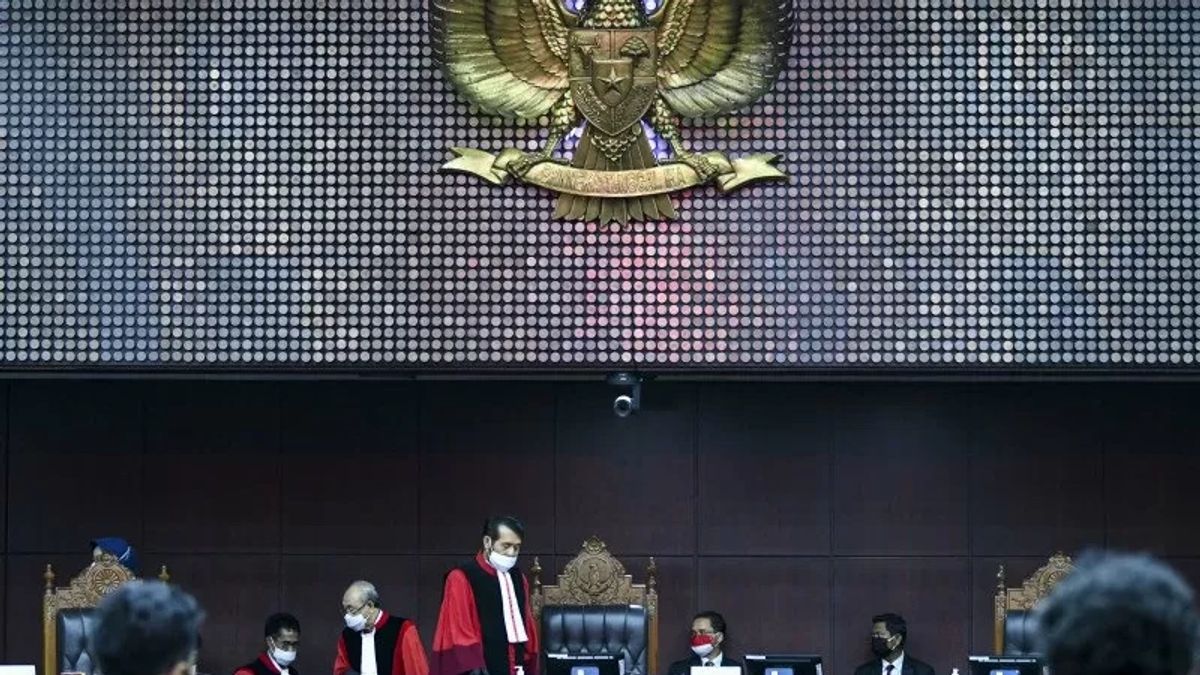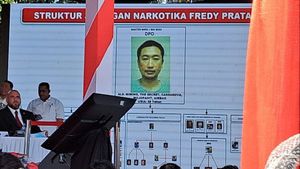JAKARTA - The Constitutional Court (MK) rejected the judicial review of Law (UU) Number 22 of 2009 concerning Road Traffic and Transportation (UU LLAJ) related to the validity period of the driving license (SIM).
The matter test case of the LLAJ Law was applied by an advocate named Arifin Purwanto against Article 85 paragraph (2) of the LLA Law, which in his petitum asks for the validity period of the SIM to be changed to life. In the article, it is stated that the SIM is valid for five years and can be extended.
"The verdict is to try, reject the applicant's application in its entirety," said Chief Justice of the Constitutional Court Anwar Usman during a trial for the pronouncement of the verdict at the Indonesian Constitutional Court Building, Jakarta, Thursday, September 14, which was confiscated by Antara.
The Constitutional Court concluded that the petitioner's application was groundless according to the law, so the application was rejected in its entirety.
"Anyway, the petitioner's application is not legally justified in its entirety," said Anwar Usman.
He explained that the petitioner's argument asking that the validity period of the SIM be equated with an electronic KTP (KTP-el) cannot be accepted because the two documents have different functions.
Constitutional judge Enny Nurbaningsih said SIM is a document that requires applicants to have competence in driving and meet the specified requirements.
"In addition, the driver's license functions as a registration for a motorized vehicle driver containing a complete identity of the driver and data on driver registration that can be used to support police investigation, investigation, and forensic identification activities," explained Enny.
Meanwhile, said Enny, the e-KTP functions as a population identity in accordance with the provisions of the legislation. Applications for e-KTP also do not need to have certain competencies such as a SIM.
"Oleh karena perbedaan tersebut, masa berlaku KTP-el adalah seumur hidup karena dalam penggunaannya, KTP-el tidak memerlukan evaluasi terhadap kompension pemilik KTP-el," katanya.
VOIR éGALEMENT:
Furthermore, regarding the extension period of the SIM, the Constitutional Court considers this to be quite reasonable. This is because SIM owners need to be evaluated and supervised for physical and spiritual health conditions as well as competence or skills in driving.
"In the reasonable reasoning limit, the possibility of changes in the physical and spiritual health conditions of SIM holders can affect the competence or skills concerned in driving motorized vehicles," said Enny.
More than that, the Constitutional Court is of the view that the SIM extension every five years is very functional to update SIM holder data.
This is useful to support the interests of law enforcement officers in tracing the whereabouts of SIM holders and their families in the event of an accident, traffic crime, or criminal act in general.
"In addition, it is important to evaluate during the renewal period of the SIM, because the examination of physical and spiritual health conditions every five years contains social values that the safety of SIM holders and others in the road space must be respected and guarded," said Enny.
There are different reasons or concurring opinions on the decision. Constitutional judge Daniel Yusmic P. Foekh encouraged the legislators to consider the affirmative policy of life-time SIM for the elderly (elderly) group.
"I am of the same opinion as the majority of constitutional judges that the petitioner's petition has no legal basis. However, in the future, it is necessary to consider affirmative policies for the elderly group to be given a life-long SIM," said Daniel.
The English, Chinese, Japanese, Arabic, and French versions are automatically generated by the AI. So there may still be inaccuracies in translating, please always see Indonesian as our main language. (system supported by DigitalSiber.id)










